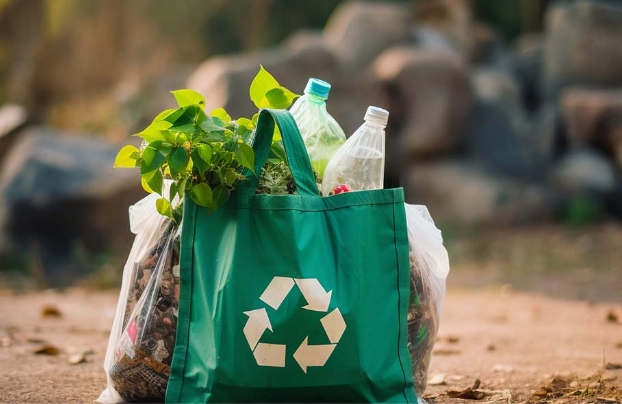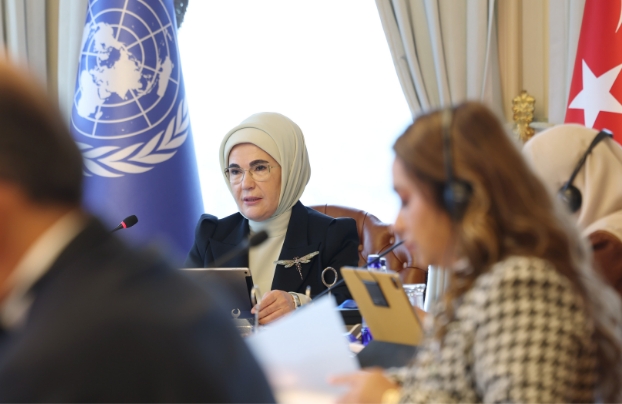Zero Waste

Boğaziçi University faculty member Prof. Dr. Ali Kerem Saysel, who is among the authors of the First Global Assessment Report, stated that the world is currently in the sixth largest mass extinction phase. Emphasizing that 1 million species are at risk, Saysel provided the following striking information:
The UN Intergovernmental Science-Policy Platform on Biodiversity and Ecosystem Services prepared the 800-page First Global Assessment Report over three years with the collaboration of 150 authors. Prof. Dr. Ali Kerem Saysel, a faculty member at Boğaziçi University’s Institute of Environmental Sciences, was among these authors. Emphasizing that the issue of biodiversity loss should be highlighted alongside climate change, Prof. Dr. Saysel drew attention to the danger: "1 million species are at risk of extinction. For the first time during the existence of humans on Earth, such a large number of species are facing the threat of extinction. The world is in the sixth largest mass extinction phase. Unlike past extinctions, the current one is driven by human activity and is on an unprecedented scale in human history. The entire world is affected by this extinction."
According to the report, since the early 1900s, 50% of the world’s forests have been lost. Over the last 50 years, there has been a 36% decline in the populations of both terrestrial and marine species. Seventy-five percent of terrestrial areas have been altered by human activity, losing their natural characteristics. More than 60% of marine areas are also under significant human impact. Additionally, the report states that 85% of wetlands have now disappeared. In the last 40 years, global consumption per capita has increased by 15%.
NOT CONSUMING FOR HAPPINESS
Prof. Dr. Saysel, one of the authors of the section titled "Sustainable Future Scenarios and Tracks" in the report, provided the following insights: "The fundamental message of the report is to change your perception of a good life; prioritize relational notions rather than consumerism. We cannot deny human material needs, but what constitutes a good quality of life is also related to our relationship with nature and with each other, as well as our intellectual experiences. As long as our happiness and well-being are primarily tied to increased consumption, our norms, laws, and institutions will continue to evolve towards more consumption. This will accelerate the loss of biodiversity and nature. We are not innocent; we need to remind ourselves to continuously question our values and lived practices. The message is very clear: We cannot continue to produce and consume this way. It is undeniable that definitive measures must be taken regarding global consumption. As consumption increases, our resource needs also rise."
TURKEY IS ALSO AT RISK
The areas with the highest risk of biodiversity loss include the tropical belt and regions of historically underdeveloped economies, including Turkey. Prof. Dr. Saysel reminded us that the tropical belt is where ecosystem productivity is highest. "This summer, Turkey experienced many forest fires. These are actually expected developments because Turkey is in the hot and dry Mediterranean basin. Mediterranean forests are ecosystems that are prone to fire during the summer, and climate change significantly increases fire risk," he stated. He warned that if preference-based policies are not implemented and transformations do not occur in many sectors, we will witness a more degraded Earth, a more unstable climate, and a lifeless nature. "I do not expect very effective and proactive policies to be implemented in the next 50 years; however, technological advancements, growing markets for new technologies, and pressures on consumption due to resource scarcity will bring about changes," he expressed.
GRETA CHANGED THE PERSPECTIVE
Prof. Dr. Saysel noted that 16-year-old Swedish climate activist Greta Thunberg and school strikes, as well as movements like "Extinction Rebellion," have influenced the perspectives of scientists. He stated, "A child around 15 or 16 comes out and says, 'You have been talking about future generations for years, but here they are, and 2050 is just around the corner. You must talk about 2050 with the same seriousness as you do today.' When it comes to the environment and human survival, 2050 or 2100 no longer refer to the future; they signify the present. This is a significant achievement in the global environmental struggle."


